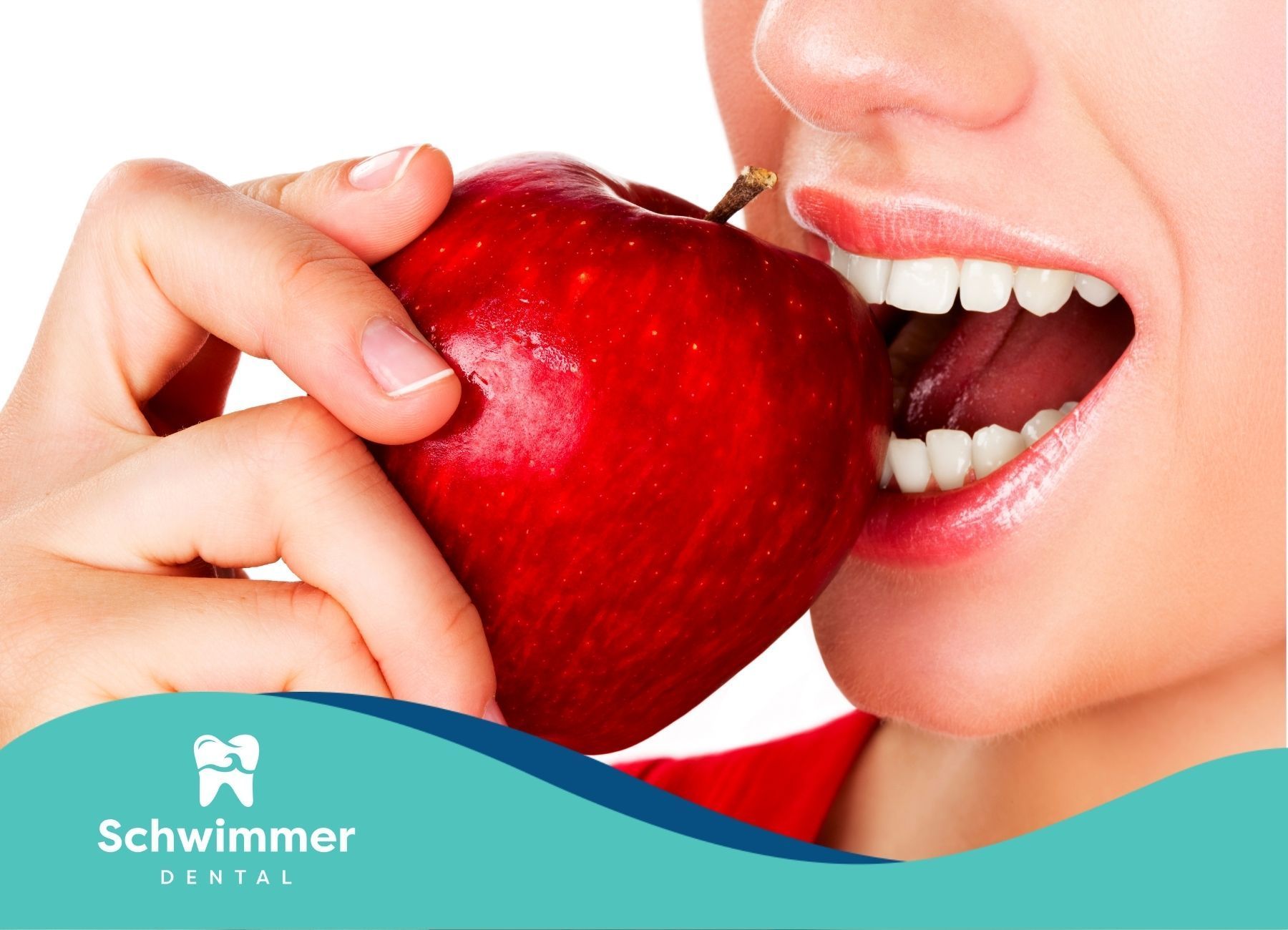Effective Ways to Remove Plaque from Teeth
Key Highlights
- Maintaining good oral hygiene is crucial for preventing plaque buildup and ensuring healthy teeth and gums.
- Plaque is a sticky film that forms on teeth, while tartar is hardened plaque that requires professional removal.
- Daily practices like proper brushing and flossing are essential in reducing plaque formation.
- Antiseptic mouthwash and fluoride treatments serve as chemical aids in controlling plaque and promoting oral health.
- Advanced dental procedures, such as professional cleanings and scaling, effectively remove plaque and tartar buildup.
Introduction
Maintaining good oral hygiene is key to a healthy smile. A big part of this is knowing about dental plaque. This sticky film builds up on our teeth all the time. If you don't take care of it, it can cause different oral health problems. This guide will look at effective ways to remove plaque from your teeth. It will include daily habits, chemical options, and advanced dental treatments. By using these methods, you can keep your oral health in top shape and stop problems before they start.
Understanding Plaque and Its Effects on Teeth
When we eat food, especially sugary and starchy things, bacteria in our mouth eat the leftover bits. They produce acids as a result. Over time, these acids mix with food debris and saliva to form a sticky film on the surfaces of your teeth called plaque. If we do not remove plaque well, it can cause many dental problems like cavities and gum disease.
Plaque is harmful because it can harden into a hard substance known as tartar or dental calculus. This hard deposit sticks to the teeth, and regular brushing and flossing cannot take it away. At this point, you will need professional help to fix your oral health.
What is plaque and how does it differ from tartar?
Dental plaque is a sticky film that forms on our teeth every day. It is made up of bacteria that feed on food scraps and sugars in our mouth. In the beginning, it looks colorless or pale yellow. However, plaque can build up and become easier to see. Since plaque is soft, good brushing and flossing can remove it effectively.
Tartar, or dental calculus, is a different problem. When plaque is not cleaned away properly, it hardens by taking minerals from our saliva. This yellowish or brownish tartar sticks tightly to our teeth, especially near the gum line, and cannot be removed by regular home care. Tartar buildup makes teeth rough, which allows more plaque to stick and can harm oral health even more.
The impact of plaque on oral health
The effect of plaque on oral health is very important. One major issue is that it causes tooth decay. The acids from plaque bacteria break down tooth enamel, which is the hard layer that protects our teeth. This damage leads to cavities, which harm the tooth structure forever.
Plaque can also build up along and below the gum line. This irritates the gum tissues and results in gingivitis. This first stage of gum disease shows up as red, swollen, and bleeding gums. If we do not treat gingivitis, it can turn into periodontitis. This more severe gum disease affects the bone around our teeth and can eventually cause tooth loss.
Aside from these main issues, plaque can also lead to constant bad breath, which is often called halitosis. The bacteria in plaque release compounds that create an unpleasant smell. This is why keeping plaque under control is very important for having fresh breath and good oral hygiene.
Daily Practices to Reduce Plaque Formation
Good oral hygiene at home is very important. It helps stop plaque from forming. Having a routine can disrupt plaque and keep it from hardening into tartar. If we use simple and effective methods every day, we can lower the chance of plaque-related oral health issues.
Brushing and flossing are key to good oral hygiene. When done right and regularly, they remove plaque from your teeth and along the gum line. Choosing the right products matters too. Using a soft-bristled toothbrush, fluoride toothpaste with the American Dental Association (ADA) Seal of Acceptance, and dental floss can really help improve our daily oral care routine.
Proper brushing techniques to effectively remove plaque
Brushing your teeth might look easy, but using the
right methods can help a lot in removing plaque. First, hold your toothbrush at a 45-degree angle to your gums. Use gentle, short strokes. This helps you clean every surface of each tooth. Try to brush for at least two minutes. It’s best to brush after meals or at least twice a day.
Here are some important points to keep in mind when brushing:
- Don't scrub too hard. This can hurt your gums and wear away enamel.
- Be sure to brush the inner, outer, and chewing surfaces of your teeth.
- Focus on the gum line since plaque builds up there.
- Don't forget to brush your tongue. It helps remove bacteria and freshen your breath.
The role of flossing in plaque control
Brushing your teeth cleans the outside surfaces, but dental floss is important for getting into the tight spaces between your teeth and below the gum line. These areas are hard for a toothbrush to reach. Dental floss removes food bits and plaque that can cause bad breath and gum disease.
When using floss, gently slide it between your teeth to form a 'C' shape around each tooth. Then, move it up and down along the side, going just below the gum line. Do this for each tooth, using a new section of floss every time. Adding flossing to your daily routine helps keep your gums healthy and stops gaps from forming between your teeth and gums, where harmful bacteria can grow.
Chemical Aids in Plaque Removal
Using chemical aids in your oral hygiene routine can really help you fight plaque. These aids work well with brushing and flossing, adding more protection against plaque and helping your overall oral health.
Mouthwashes that have antiseptic properties can fight harmful bacteria in your mouth. This helps stop plaque from forming. Fluoride is a natural mineral that makes tooth enamel stronger. This means your teeth are better protected from acid attacks caused by plaque bacteria. By adding these chemical aids to your daily routine, you create another layer of protection. This leads to a cleaner and healthier mouth.
Using mouthwash for plaque reduction
An antiseptic mouthwash can be a great part of your oral hygiene routine. These mouthwashes have special ingredients that kill the bacteria that cause plaque. Choose alcohol-free mouthwashes that have fluoride for extra benefits.
Here are some important benefits of using mouthwash:
- It gets into spots that are hard to clean with just brushing and flossing.
- It helps to reduce harmful bacteria, which lowers plaque.
- It freshens your breath and gives a clean feeling in your mouth.
The effectiveness of fluoride treatments
Fluoride is very important for making tooth enamel stronger and stopping tooth decay. There are different ways to get fluoride, like toothpaste, mouthwashes, and professional treatments. These help bring back minerals in weak enamel and protect teeth from the harmful acids made by plaque bacteria.
Fluoride treatments are especially good for people who often get cavities or have problems with enamel erosion. Using fluoride regularly, along with good oral hygiene, helps make tooth enamel strong. This makes teeth less likely to decay and helps keep your mouth healthier.
Advanced Dental Procedures for Plaque Removal
Daily oral hygiene is very important, but professional dental care is also necessary. It helps remove tough plaque and tartar that are hard to get rid of with just home care. These professional cleanings make sure your teeth are thoroughly cleaned and help find any oral health issues caused by too much plaque buildup.
Dental hygienists do professional cleanings using special tools. They effectively remove plaque and tartar, and they also perform a dental exam. This helps keep your oral health in good shape, stop cavities, and catch gum disease early. By going to the dentist regularly, you help ensure a brighter and healthier smile.
Professional cleaning – What to expect
During a professional cleaning, dental hygienists use special instruments to get rid of plaque and tartar from your teeth. They can reach areas that are hard to clean. This process usually includes scaling, which removes tartar above and below the gum line. Then, they polish your teeth to make them smooth and help stop plaque from building up again.
Professional cleanings provide a deep clean that you can't achieve with regular at-home oral hygiene. These cleanings are important for preventing gum disease. They also help fix existing problems and keep your teeth and gums healthy.
The benefits of dental scaling and root planing
For individuals with more advanced gum disease, dental scaling and root planing might be necessary. These procedures target plaque and tartar buildup below the gum line, where regular cleaning methods can't reach.
| Procedure | Description | Benefits |
|---|---|---|
| Dental Scaling | Removes plaque and tartar from tooth surfaces below the gum line using specialized instruments. | Reduces inflammation, halts gum recession, and prevents further bone loss. |
| Root Planing | Smooths rough spots and irregularities on the tooth roots, making it difficult for plaque and bacteria to adhere. | Promotes gum reattachment, reduces pocket depth, and prevents future infection. |
Conclusion
In conclusion, it is very important to take care of your mental health and well-being. You can do this by following simple tips. Keep a good sleeping routine. Be aware of what you eat and drink. Get involved in activities that help you feel better. Also, try to think positively. Remember, looking after your mental health is as important as looking after your physical health. So, make sure to make self-care a part of your daily routine.
Frequently Asked Questions
Can diet influence plaque buildup on teeth?
A healthy diet is important for reducing plaque buildup. By cutting back on starchy foods like bread and sugary snacks, you can lower the amount of plaque on your teeth. These changes in your diet, along with good oral hygiene, can greatly reduce the risk of plaque and cavities.
SOURCES:
https://www.healthline.com/health/dental-and-oral-health/plaque
https://www.colgate.com/en-us/oral-health/brushing-and-flossing/how-to-brush-your-teeth-properly
https://www.listerine-me.com/mouth-coach/types-of-mouthwash-and-their-uses
https://my.clevelandclinic.org/health/treatments/11187-dental-check-up
https://www.medicalnewstoday.com/articles/327168



